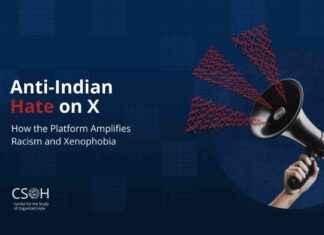Due to the risk of developing rare, but serious, blood clots, U.S. regulators have restricted who can get Johnson & Johnson’s COVID-19 vaccination on Thursday.
According to the Food and Drug Administration, adults should not be given the shot unless they are unable to receive another vaccine or request J&J’s vaccine. For months, U.S. officials have recommended that Americans receive Moderna or Pfizer shots in place of J&J vaccine.
Dr. Peter Marks, FDA’s chief vaccine officer, stated that the agency had reviewed the data regarding the risk of blood clots threatening life and concluded that the vaccine was safe.
Marks stated that if there is an alternative that seems to be equally effective in preventing serious outcomes from COVID-19 we would prefer that people choose that. We’re careful to emphasize that this option is better than no vaccine.
He said that the problem is most common in the first two weeks following vaccination.
Because it only required one shot, the vaccine was initially considered a powerful tool to fight pandemics. The single-dose vaccine proved to be less effective than the Moderna and Pfizer vaccines.
The Centers for Disease Control and Prevention recommended Moderna and Pfizer shots to replace J&J’s in December due to its safety concerns.
Federal scientists had discovered 60 cases, nine of which were fatal, of this side effect as of mid-March. This is 3.23 cases of blood clots per 1,000,000 J&J shots. According to Marks, the problem is more prevalent in women younger than 50 years old, where the death rate was approximately 1 per million shots.
Marks stated that the FDA took extra time to analyze the problem in order to make sure it wasn’t related to another issue such as women who take birth control drugs that increase their risk of clotting.
J&J will warn of more serious side effects and provide a clearer warning.
The FDA has updated its instructions to J&J to allow people who have had severe allergic reactions to other vaccines to continue to receive J&J’s vaccine. The agency stated that J&J could be an option for those who are unable to get the Moderna or Pfizer mRNA vaccines and would therefore prefer J&J’s shot.
In an emailed statement, a J&J spokesperson stated that data continue to support a favorable benefit/risk profile for Johnson & Johnson COVID-19 vaccination in adults when compared to no vaccine.
Clotting problems were first discovered last spring with J&J’s shot in the U.S., and a similar vaccine by AstraZeneca used in other countries. The U.S. regulators ruled that J&J’s single-and-done vaccine was more beneficial than what was considered to be a rare riisk — provided recipients were warned.
COVID-19 causes deadly blood clots, too. The vaccine-linked type is different. It’s believed that the vaccines cause a rogue immune reaction. Clots can form in places other than the ones that drain blood from the brain. Patients who have abnormally low levels in platelets may also experience clot formation. The unusual clots can cause severe headaches, nausea, and abdominal pain a few weeks after the J&J vaccine.
New Brunswick, New Jersey-based company said last month it did not expect to make any profit this year from the vaccine and that it was suspending its sales projections.
A series of problems hampered the rollout of the vaccine by J&J, including manufacturing issues at a Baltimore plant that caused J&J to import millions from overseas.
Regulators also added warnings about blood clots as well as a rare neurological reaction called Guillain Barre syndrome.
Moderna and Pfizer have supplied the majority of COVID-19 vaccinations in the U.S.












